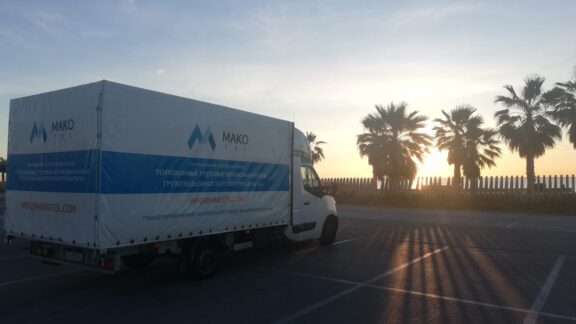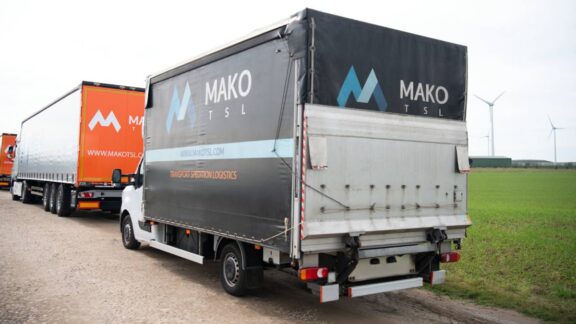In the world of logistics and freight forwarding, cabotage is gaining significance, especially in the context of globalization and increasing competition. For our freight forwarding company, MAKO TSL, understanding and effectively managing cabotage is not only important but crucial to optimizing transport operations. Despite its critical role in the Polish transport sector, the concept of cabotage is still often misunderstood, and its application can sometimes deviate from legal standards. In this article, we will explore what cabotage is, its importance to the transport industry, and the benefits and challenges associated with its implementation.
What is Cabotage and How Does It Differ from International Transport?
Cabotage refers to a transport activity involving the transportation of goods within a single country by a carrier from another country. In practice, this means that a vehicle registered in one country performs transportation within another country, which is not its home country. For example, a Polish transport company carrying goods within Germany, from one German address to another, is engaging in cabotage.
Cabotage and international transport, though often used interchangeably, differ fundamentally in terms of scope and regulation. International transport involves the movement of goods between different countries. This means that the carrier departs from one country and delivers the cargo to another, often crossing several national borders. This type of transport is governed by international agreements and regulations, such as the CMR (Convention on the Contract for the International Carriage of Goods by Road), which define the rules of liability, documentation, and customs procedures.
Cabotage, on the other hand, refers to transport operations carried out within one country by a carrier from another state. After delivering goods to a country, the carrier may perform a limited number of cabotage operations within that country before returning to their home country or undertaking another international transport. The regulations governing cabotage are closely tied to local and EU laws, aimed at balancing competition and protecting the domestic market from excessive foreign competition.
In summary, cabotage is intended to maximize transport capacity and operational efficiency within a single country, while international transport focuses on moving goods and services between countries.
Polish Transport Industry: A European Powerhouse in Cabotage
Estimating the share of cabotage in the Polish transport sector can be challenging, as these data may vary depending on the source and period of analysis. It is also important to consider the different levels of regulation depending on the type of transport, which further limits data availability. However, according to available reports and industry analyses, we can state that cabotage plays a significant role in the operations of Polish transport companies.
In 2021, according to data published by the Polish Chamber of Transport, cabotage accounted for approximately 10-15% of the total road transport carried out by Polish companies in the European Union. It is also worth noting that Polish transport companies are among the major players in the European cabotage market, which may result in a higher share of cabotage in their operations compared to other countries.
Cabotage in Poland is an important element of the operational strategies of many transport companies, allowing for better utilization of fleets and increasing operational efficiency.
Cabotage in the Context of the European Union
In the European Union, cabotage is regulated by EU law, which aims to facilitate the free movement of goods and harmonize road transport rules. According to these regulations, transport companies from EU member states may perform cabotage operations in other EU countries, provided they comply with certain rules.
Within a single country, after completing an international transport, a carrier has the right to perform a specified number of cabotage operations in that country. For example, after delivering cargo to Germany, a Polish transport company can perform up to three cabotage operations in Germany, provided that each takes place in a different region.
Over the past decade, the European Union has introduced several changes to cabotage regulations, aimed at both simplifying and regulating this aspect of road transport.
In 2013, as part of transport law reforms, the EU introduced a regulation intended to simplify the rules on the number of cabotage operations, allowing up to three such operations within seven days of delivering a load to another member state. In 2020, these regulations were updated, introducing additional requirements regarding transparency and compliance with national regulations.
Moreover, changes in regulations regarding CO2 emissions and environmental standards have also impacted the way cabotage operations are conducted, forcing companies to invest in more eco-friendly solutions.
Benefits of Cabotage
- Fleet Optimization: Cabotage allows freight forwarding companies to better utilize their vehicle fleets. Carriers can take on additional jobs in the country they have entered as part of international transport, increasing operational efficiency and reducing the costs of empty runs.
- Profitability Growth: Carriers can maximize their revenue by performing cabotage operations, which can be more profitable than international transport, especially in the context of fuel costs and road tolls.
- Operational Flexibility: Through cabotage, transport companies can offer more flexible services to their customers, which can increase their competitiveness and attract new clients.
Challenges of Cabotage
- Regulations and Laws: Each country has its specific cabotage regulations, which may vary. Transport companies must keep track of changing regulations to avoid legal issues. In the European Union, the situation is more unified, but differences in the interpretation of rules still exist.
- Competition: Cabotage can lead to intense competition in the transport market, especially in countries popular among foreign carriers. Companies must rise to the challenge by offering competitive prices and high-quality services.
- Administrative Costs: Managing cabotage involves additional administrative costs, such as permit fees, reporting, and documentation. Companies need to be well-organized to effectively manage these aspects.
Cabotage in Practice – The Example of MAKO TSL
As a freight forwarding company and experienced player in the transport market, MAKO TSL recognizes the immense opportunities that cabotage offers. With advanced fleet management systems and strict adherence to regulations, we can effectively utilize cabotage to optimize operations and increase profitability. Collaboration with local partners and regular training for our team are key to managing cabotage and maintaining high service quality.
Cabotage is a crucial element in transport operations, offering numerous benefits but also posing challenges for companies. For MAKO TSL, effective cabotage management is key to achieving success in the highly competitive TSL (Transport-Shipping-Logistics) industry. By continuously monitoring regulations, optimizing operations, and focusing on service quality, we can fully exploit the potential of cabotage, benefiting both ourselves and our clients.



